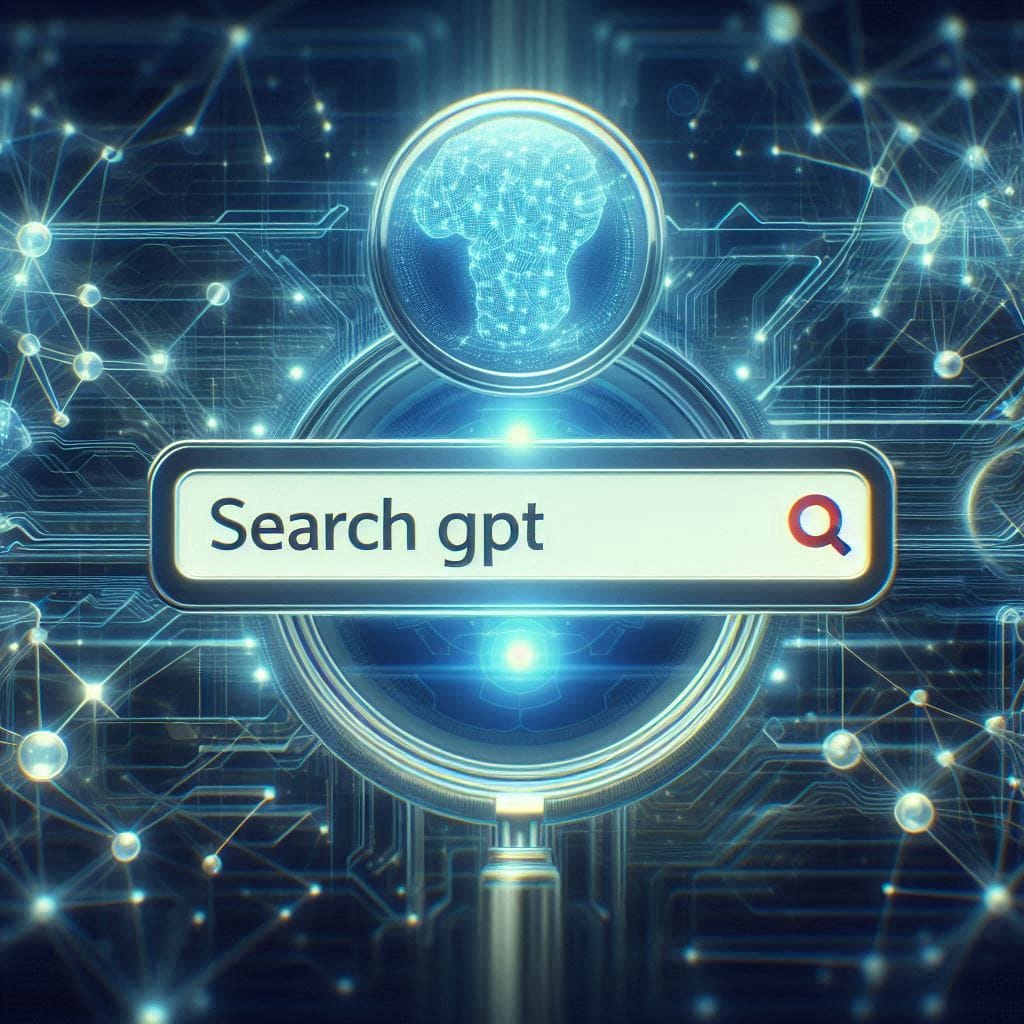The world of search has long been dominated by Google, the go-to platform for finding quick answers, solutions, and information on virtually anything. However, as AI continues to reshape the digital landscape, new search solutions are emerging, leveraging more personalised and advanced algorithms. SearchGPT by OpenAI is one such innovation, combining the power of conversational AI with real-time information retrieval. This blog explores how SearchGPT works, its unique strengths, and why it could serve as a compelling alternative to Google Search.
1. What is SearchGPT?
OpenAI’s SearchGPT is an advanced AI search tool designed to offer accurate, conversational, and contextually relevant responses. Built on GPT-4 technology, SearchGPT combines AI-driven insights with traditional search capabilities, giving users the best of both worlds: immediate responses and search-based information retrieval. It not only processes queries but also understands complex intent, delivering results that feel more tailored and conversational than a typical search engine.
2. How Does SearchGPT Work?
At the core of SearchGPT lies OpenAI’s large language model, specifically designed to interpret natural language and generate human-like responses. Unlike traditional search engines that rely on algorithms prioritising keywords and metadata, SearchGPT uses machine learning to understand context, sentiment, and intent behind user queries. This results in responses that are not only accurate but also nuanced, catering to specific needs and preferences.

Real-Time Search Capabilities
SearchGPT is enhanced with real-time browsing capabilities, allowing it to fetch recent data and provide current insights that can be critical for time-sensitive searches. This feature enables SearchGPT to answer questions about the latest trends, breaking news, and recent updates, making it a flexible alternative for users who require up-to-the-minute information.3. SearchGPT vs. Google Search: Key Differences
Here’s how SearchGPT sets itself apart:- Conversational Responses: SearchGPT can engage in a conversational manner, which means users can ask follow-up questions and refine queries without starting from scratch.
- Contextual Awareness: Unlike traditional search engines, SearchGPT maintains context, understanding the progression of questions and improving the relevancy of responses.
- Real-Time Information: With integrated browsing capabilities, SearchGPT stays current, something that Google typically does through separate news or alerts.
- Customizable Experience: SearchGPT’s responses are designed to cater to individual preferences, potentially improving user satisfaction for those who prefer a more interactive approach.
4. Benefits of SearchGPT: Why It Might Be Right for You
Choosing SearchGPT over Google Search depends on what you value in your search experience. Here are some of the key benefits:a. Enhanced Personalisation
Unlike Google, which primarily ranks pages based on a set of SEO-driven algorithms, SearchGPT goes beyond, understanding user intent more deeply and providing responses that match the tone and context.b. More Engaging Interaction
With SearchGPT, searching feels more like a conversation, where you can ask questions, refine answers, and explore multiple angles of a topic without restarting your query each time. This conversational approach can be especially useful for research, complex queries, or discovering information in layers.c. Less Overwhelming Results
SearchGPT reduces the need to sift through countless results. Instead, it delivers synthesized answers that align more closely with the user’s specific question, eliminating some of the noise often found on traditional search engines.5. Potential Limitations: Why Google Still Has an Edge
While SearchGPT offers unique advantages, it has certain limitations. Google’s search engine is still superior in areas like database size and language support. Furthermore, Google’s extensive knowledge graph and rich snippets often provide faster answers for common queries, like simple calculations, definitions, or landmark facts.- SEO Depth and Variety: Google has years of SEO optimisation, refining what works best for different industries, and delivering tailored ads and content for every query.
- Video and Image Searches: Google’s capacity to retrieve multimedia content is unrivaled, making it a strong choice for users who rely on visual information.
- Product Recommendations: Google’s search is highly optimised for shopping queries, offering rich snippets, pricing, and reviews directly on the search page.
6. The Future of Search: Can SearchGPT Replace Google?
The rise of SearchGPT suggests that the future of search may lean more toward AI-driven solutions. Although Google has integrated AI into its own tools, OpenAI’s approach with SearchGPT is unique for its conversation-first design. Over time, as AI continues to evolve, tools like SearchGPT may become popular for tasks where context, conversation, and specificity are valued over traditional search results.Stay ahead with SearchGPT and experience the next evolution of search firsthand. Will this be the end of traditional search engines? Only time will tell, but the future of AI-driven search is certainly promising!




